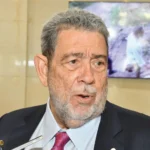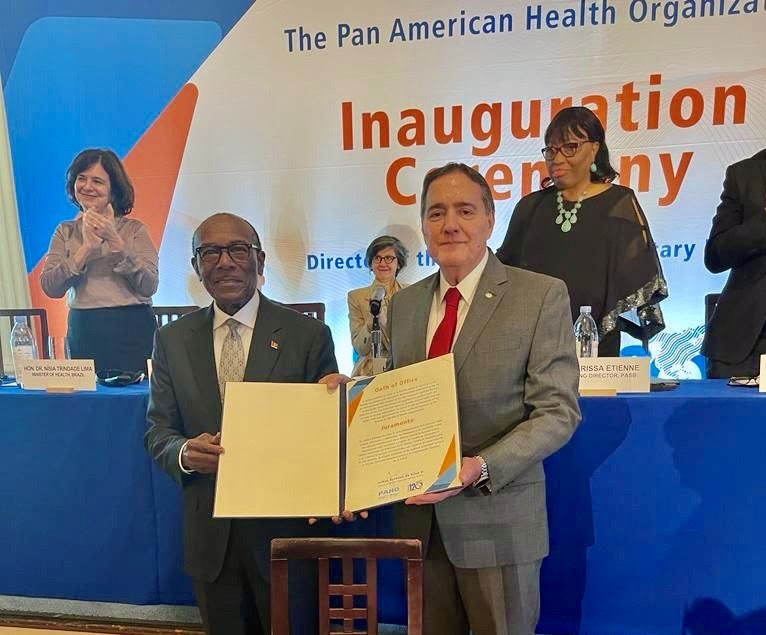Dr. Jarbas Barbosa was sworn in today as the new Director of the Pan American Health Organization (PAHO), pledging to work in partnership with member states to end the pandemic and ensure that the region’s health systems recover stronger than before. He will take office on 1 February 2023.
“Countries in the Americas face a complex epidemiological landscape, with the stubborn persistence of communicable diseases, the risk of outbreaks and epidemics, the rise of non-communicable diseases, the damage caused by traffic accidents and violence, and the impacts of climate change,” Dr. Barbosa said. “We need strong, resilient health systems that can perform all the Essential Public Health Functions adequately.”
Dr. Barbosa, formerly Assistant Director at PAHO, was sworn in at a ceremony held at the Organization of American States (OAS). PAHO is the specialized international health agency for the inter-American system and Regional Office for the Americas of the World Health Organization (WHO). Dr. Barbosa, a national of Brazil, succeeds Dr. Carissa F. Etienne, of Dominica.
To address the “significant inequalities between and within countries” and to ensure post-pandemic recovery and preparedness, Dr. Barbosa’s tenure will focus on five strategic pillars:
End the pandemic with the tools countries have at hand, including surveillance and vaccines
Apply the lessons learned from the pandemic to prepare for future health emergencies
Guarantee rapid and equitable access to health innovations for all countries in the region
Build resilient national health systems based on Primary Health Care
Strengthen PAHO’s capacity to help member states.
“I will work tirelessly,” Barbosa said, “to ensure that PAHO maintains all of its many achievements to date, renewing itself every step of the way, always building networks and working as a bridge for understanding, solidarity and innovation.”
The COVID-19 pandemic has underscored the importance of universal health to both the public and heads of state like never before, Barbosa said.
“It is urgent that we make use of this attention to strengthen health systems, address persistent issues and shortcomings, and ensure the right to health of all peoples in our Region,” he added.










